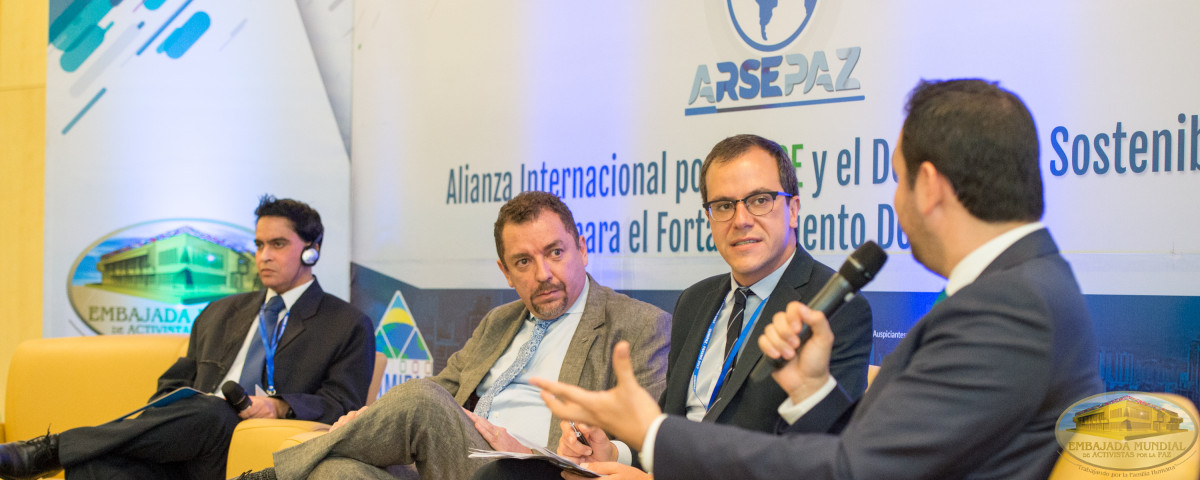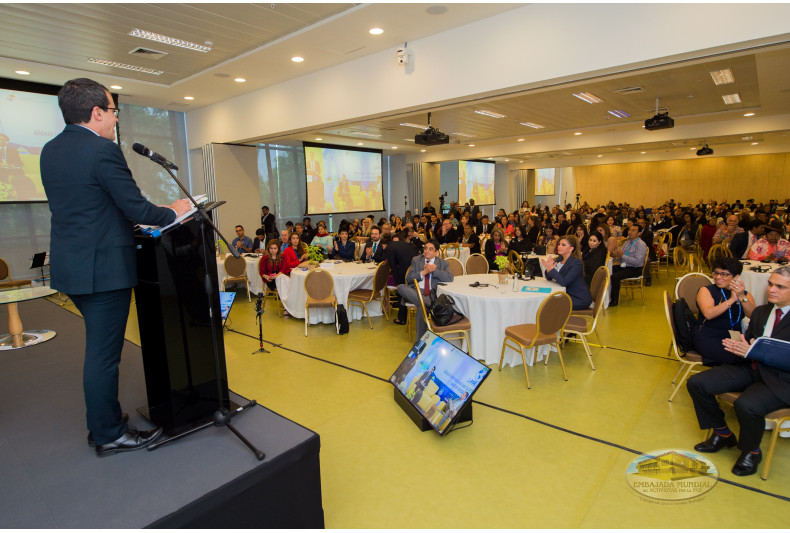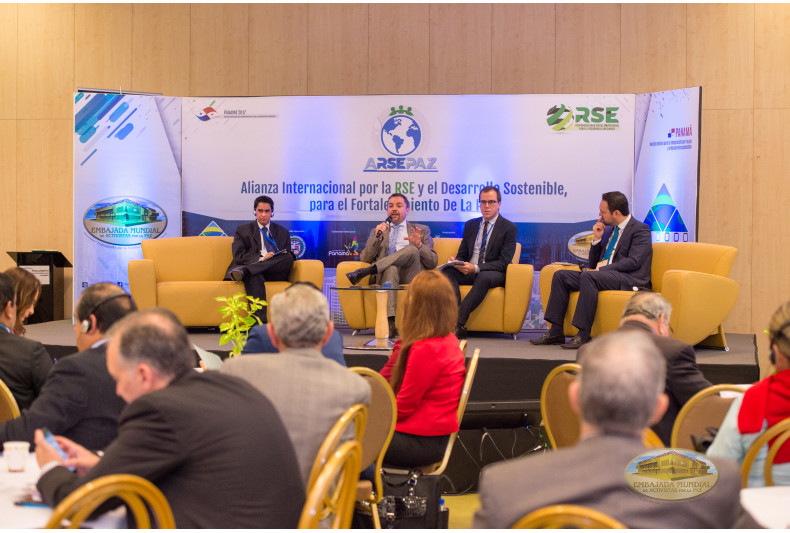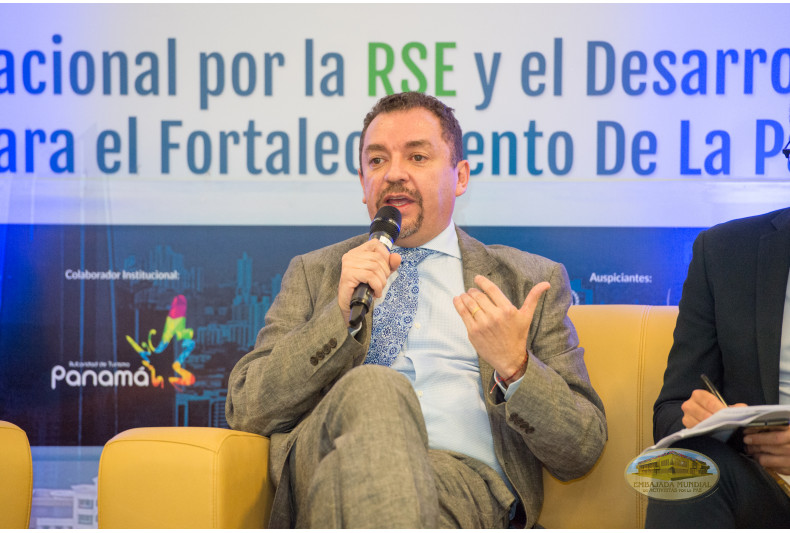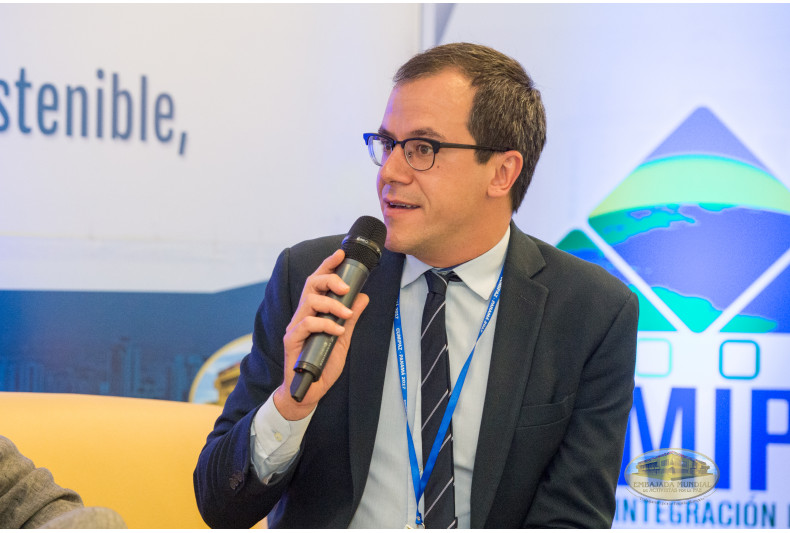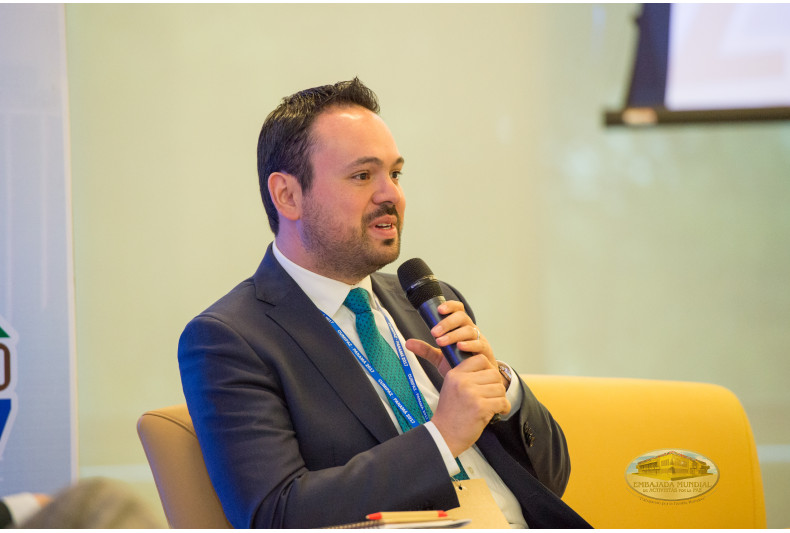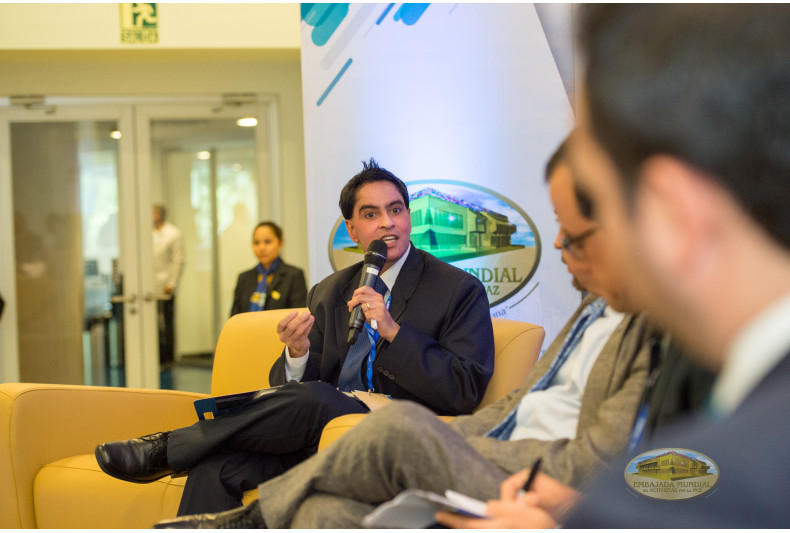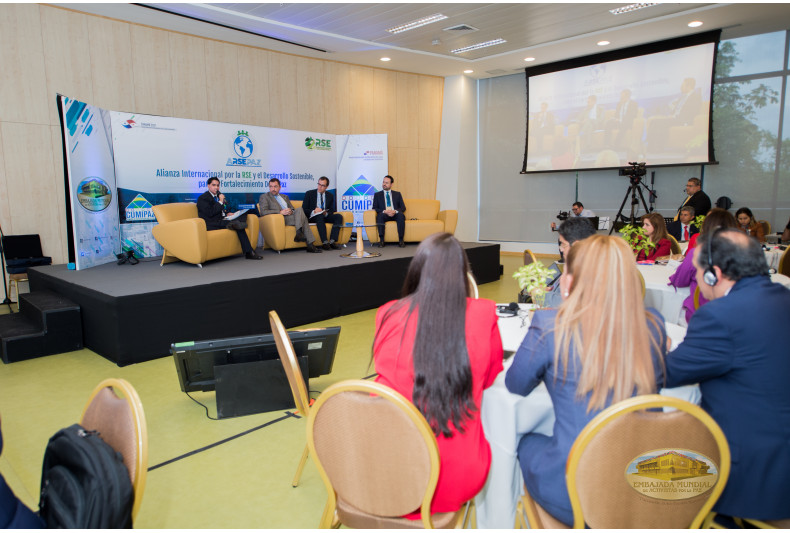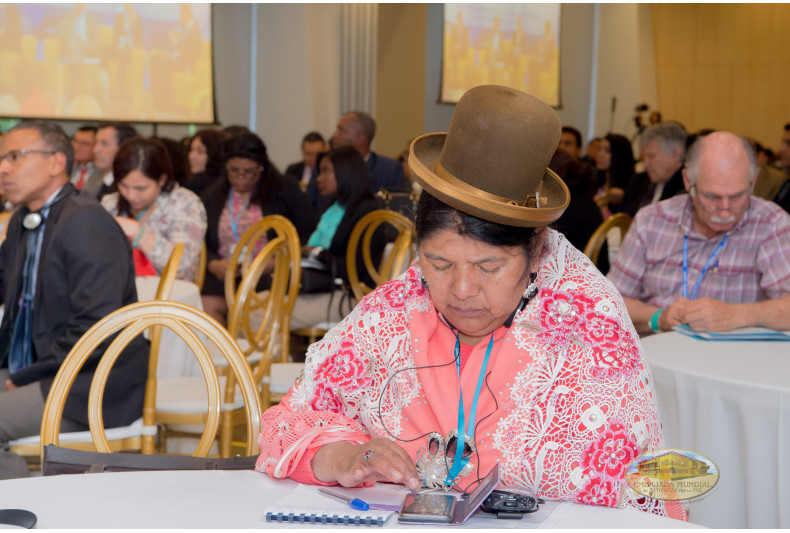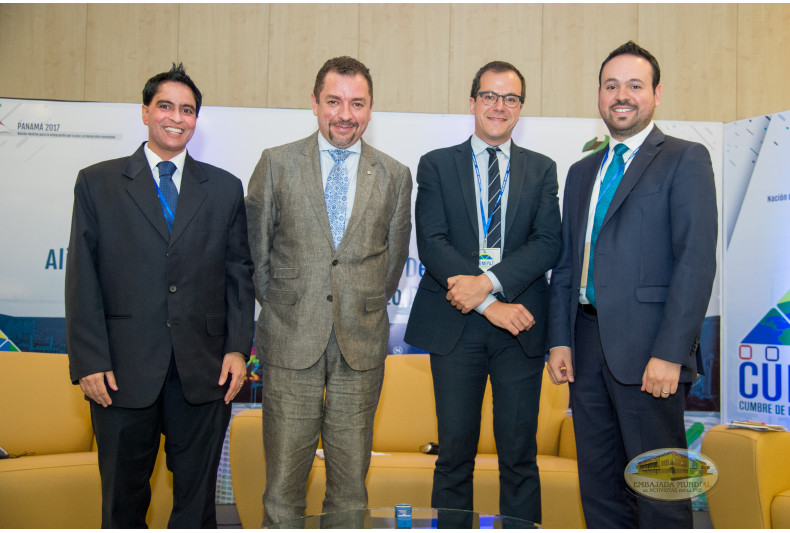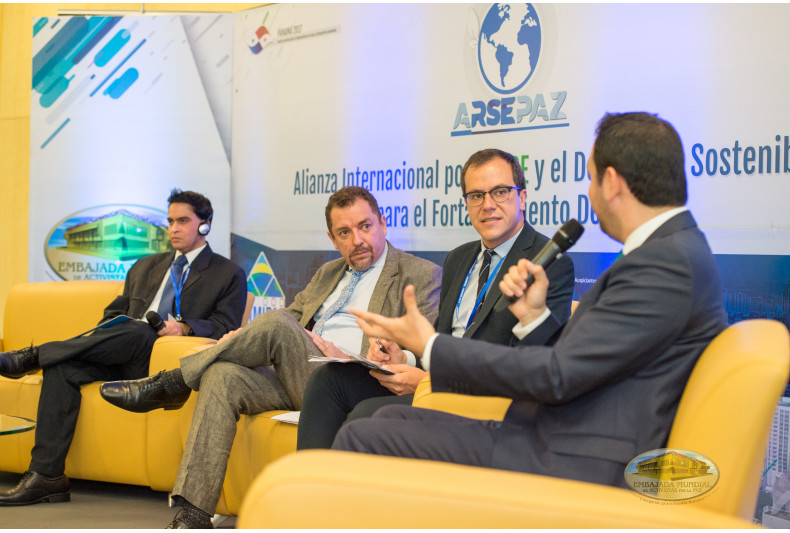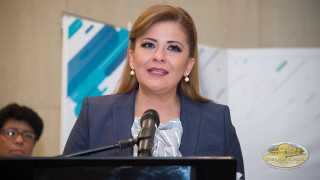Smart cities: Analysis of consumption and responsible production
See GalleryFourth table of the CSR Session brings together specialists in sustainable development
In order to raise awareness in the productive sector on the implementation of Corporate Social Responsibility (CSR), based on values and principles, and to the citizens, to address the social issues and sustainability of Mother Earth, the theme Smart Cities: consumption and responsible production, was developed during the CSR Session for Sustainable Development of CUMIPAZ 2017.
The expert panel consisted of: Ash Pachauri, founder and director of the Center for Human Progress; Humberto Grimaldo, general coordinator of the Regional Observatory of Social Responsibility for Latin America and the Caribbean (ORSALC); Jorge Reyes Iturbide, director of the Center for Intelligence and Research in Corporate Social Responsibility and Sustainability - IDEARSE; and Javier Mestre, Director of Correspondents in Mexico.
The analysis focused on the impact of environmental consumption and the production system of societies; in turn, stressed the importance of cities being able to respond adequately to the needs of institutions, businesses, and inhabitants, in a sustainable way. The panel addressed two of the Sustainable Development Goals (11-12).
The panelists addressed a large group of businessmen, academics, environmentalists and government officials from different countries gathered in the Hemicycle of the Latin American Parliament in Panama City.
To introduce the subject, Javier Mestre (moderator), mentioned:
"According to the United Nations, 54% of the world's population lives in cities, and it is expected that in 2030 it will rise to more than 60%; and while cities occupy only 3% of the planet's surface, they need up to 80% of the energy consumption we consume on the planet."
Analysis and reflection
Ash Pachauri, director of the Center for Human Progress, said that a smart city must use technology to provide solutions and integrate urban communities to solve their problems. He added that human values should be promoted to meet the current challenges of living in sustainable cities.
For the coordinator of the ORSALC, Humberto Grimaldo, smart cities are those that harmonize the understanding and will, and not as an impact, but as a systemic effect.
He said that Latin America, Mexico City, and Sao Paulo are among the most populated cities in the world, and regarding others, they are the ones with the highest level of inequality in the region and in the world.
For his part, Jorge Reyes, director of IDEARSE, said that it is necessary to put people in the center of these cities and see how technology can be turned into that element which allows the developing of these systemic effects.
How can the productive sector help the development of smart cities?
Pachauri said that business is crucial for financing the technology and contributing to the construction of smart cities; adding that Governments alone will not do so; however, he pointed out that the participation of communities is essential to achieve sustainable development.
At this point, Grimaldo explained: "A real intelligent city has to focus on the concept, in my view, of territorial social responsibility, and in the case of universities, with their research projects they have to transform their own environments, the environments of their own cities".
Reyes argued that companies should consider ethics and decision making as elementary factors in achieving change; that consider the risks, the impacts and the generation of value.
To consumers and city dwellers
In this regard, Ash Pachauri said:
"Creating smart cities can only be achieved when people are educated and have the knowledge and can transmit that knowledge into action, otherwise many of the solutions will not be achieved. What we really need is a system that works."
Humberto Grimaldo emphasized territorial social responsibility, pointing out that the intelligent city has to bring with it a real project of coexistence. "Territory as a learning space, reflective learning, strategic learning, and practical learning, and also the territory and the intelligent city as a physical base in its geographical dimensions."
For his part, Jorge Reyes spoke about the importance of being a critical and intelligent consumer. "Let's begin to see this product that I am acquiring, what is behind it, what are the practices in environmental and social matters of the company that is putting it on the shelf," he said.
